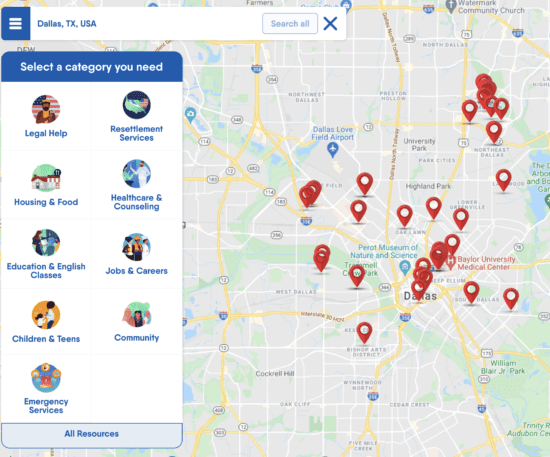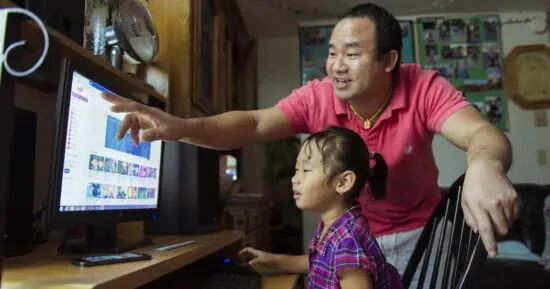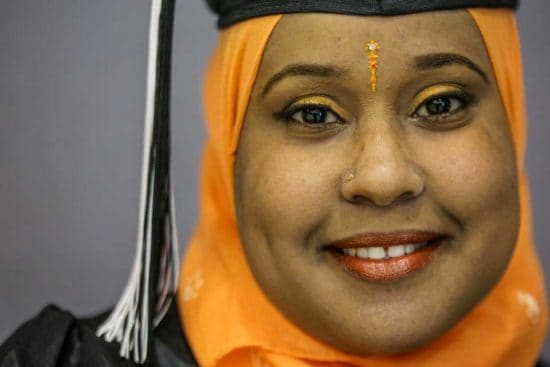对于需要帮助照顾孩子的父母,有不同的选择。 托儿服务在美国很普遍。 了解儿童保育的类型。 寻找免费和低成本的选择。
什么是儿童保育?
保育是指您依靠他人照顾年幼的孩子。在美国,父母在工作或学习期间使用托儿服务是很常见的。
有些难民和移民父母从未让别人照顾过自己的孩子。 在美国,您可能需要外出工作才能赚到足够的钱。 这种情况在单亲家庭中尤为常见。
幸运的是,有很多托儿服务可以为不能在家的父母提供帮助。
分享关爱
并非每个人都需要支付专业的儿童保育费用。 如果您有朋友或家人愿意照看您的孩子,这会对您有帮助。
与伴侣分享护理
您和您的配偶或伴侣可以在不同的时间工作,这样您就不必把孩子送到托儿所。 这样做可以省钱,但也意味着你们可能不能经常见面。 对于来自某些文化背景的男性来说,这也是一件难事,因为他们不习惯照顾自己的孩子。
与其他家庭分享照顾
您也许可以找到另一位家长与您 "交换 "托儿服务。 这就意味着,你要照看他们的孩子一天,他们就要照看你的孩子一天。 如果您的家人、邻居或朋友的孩子与您的孩子年龄相仿,这将是一个好主意。
带薪育儿
日托
"日托 "是指由您以外的人对您的孩子进行日常照顾,通常是在您自己的家以外。
日托有不同的类型。
- 家庭日托。 这意味着你要把孩子送到别人家,由别人照看孩子。
- 日托中心它们不在私人家里,通常有更多的孩子在那里。
大多数托儿所要求您注册并按月付费。 日托中心的工作时间一般从早上 7 点到下午 6 点,但每个日托中心的工作时间可能不同。 有些城市有随到随学的日托所,您可以带着孩子在那里呆上几个小时。
州政府为家庭日托和日托中心颁发许可证。 这意味着他们要检查托儿所是否安全。 国家还制定了日托所必须遵守的规则。
最好选择有执照的托儿所。 您可以 按州搜索托儿服务,并找到一份选择清单。
保姆
保姆是您花钱请来照看孩子的人。 大多数保姆都会上门服务。 有时,青少年会照看孩子。
以下是选择保姆时需要注意的几件事:
- 建议。只雇用您认识并信任的保姆,或您认识的人向您推荐的保姆。 询问推荐人。
- 培训。 保姆最好有 CPR(心肺复苏术)和急救课程证书,以便在紧急情况下做出反应。
- 问题 与保姆交谈 询问他们的资质,审查他们的技能如何与您的家庭需求相匹配。
- 测试。请务必注意保姆在您的孩子身边的行为举止。 看看您的孩子和保姆是否相处融洽。
夏令营
在暑假期间,您也许能找到日间夏令营让您的孩子参加。 在美国,营地并不意味着在户外露营。 孩子们一天的活动通常集中在某一项活动上。 例如,您可以找到足球、艺术、戏剧、教会等方面的夏令营。
通常情况下,您所在的城市会有自己的营地选择,价格可能比其他城市便宜。 大多数日间夏令营还为低收入家庭减免费用。 向学校或社区中心咨询夏令营的情况。
也有过夜营地,孩子们通常会在那里呆上一周。 这很可能是为了体育运动和其他外部体验。 有些是用来学习的。 例如,学习计算机技能。 许多过夜营地还为低收入家庭提供减免费用。
在选择夏令营之前,请决定您希望孩子参加夏令营的时间。 查看费用和价格中包含的内容。 想想您的孩子将在夏令营中学到哪些技能、能力或天赋。
免费和低成本儿童保育
学龄儿童从 5 岁左右开始享受免费公立学校教育。 每天大约有 6 个小时照顾您的孩子。 有些工作选项可能会在这些时间段为您提供兼职工作。
学前教育
您可以在孩子两岁左右时送他们去学前班。 学前班帮助孩子们为入学做好准备。
美国有一个名为 "Head Start "的国民计划,为低收入家庭提供免费学前教育。 您可以通过搜索 Head Start 定位器找到您附近的计划。
课后活动
如果您在上学前和放学后需要托儿服务,您应该考虑一下课后计划。 这些计划将帮助您的孩子适应新学校、结交朋友并获得功课辅导。
许多学校会为孩子们提供低价或免费的课后活动。 有时会有专门针对难民青年的计划。
- 询问您孩子的学校是否有适合您孩子的课后活动。
- 美国男孩女孩俱乐部的俱乐部遍布全美。
- 基督教青年会有课后活动,还提供托儿服务和启蒙计划。
- 您还可以在 FindHello中的 "儿童& 青少年 "类别中搜索本地组织。
- 搜索 " 校外教育联盟"计划。
我可以让孩子独自在家吗?
千万不要把婴幼儿单独留在家里。 让孩子处于无人监管的状态可能会被视为虐待和忽视儿童。 美国有 3 个州规定了将 孩子独自 留在 家中的 最低年龄。在伊利诺伊州,他们必须年满 14 岁。 在马里兰州,他们必须年满 8 岁。 在俄勒冈州,他们必须年满 10 岁。 在其他州,每种情况都要单独处理,对忽视的定义也不尽相同。
让孩子在没有大人陪伴的情况下独处取决于他们的年龄和成熟度。 在您的孩子独自在家之前,请务必让他们了解安全知识和紧急情况下的应对措施。
| 美国有许多保护儿童的法律,了解更多有关抚养儿童和养育法律的信息。 |



